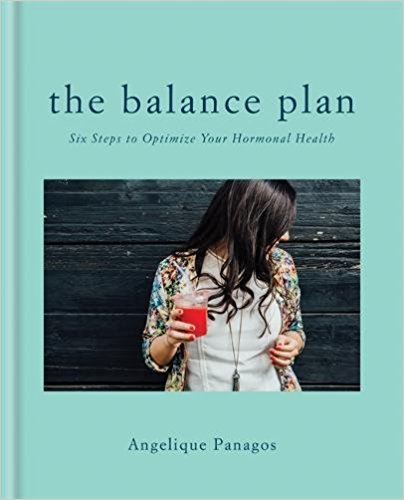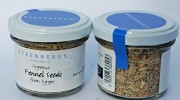StressBusters – Looking at natural ways to help the body cope with stress
Depending on the individual, stress can manifest itself in many different ways. All the pressures of the modern lifestyle such as working long hours, deadlines, eating on the run and the sheer speed at which we live can cause heavy strain and stress on the body.
Unfortunately, chronic stress, in the long run, may give rise to a whole host of ailments and can contribute to a long list of health problems.
- Chronic fatigue /exhaustion
- Disturbed sleep or insomnia
- Alcohol intolerance
- Depression
- Headaches
- Loss of libido
- Poor concentration/ memory
- Mood swings, irritability
- Frequent infections
- Poor digestion/ digestive concerns
- Raised blood pressure
- PMS
Many of us have at least one of these symptoms; prolonged exposure to stress can inevitably leave us feeling overwhelmed and unable to cope with daily challenges.

However, there are ways to boost your resistance. With a sensible approach, including eating the right sort of food and lifestyle choices, there are ways of reducing the effects of stress and helping your body to remain healthy.
How does stress cause these ailments?
Simply put, stress equals life in acute situations! In prehistoric times, stress mostly came in the form of threats to our survival. Our bodies evolved to cope through that ‘fight-or-flight’ response, preparing the body for immediate activity. This is short-lived: you either run or fight for your life. Today we experience stress in completely different ways. But the fact remains- stress in the body is a reaction to physical, psychological, or emotional demands and is part of modern living. The stress response is designed to enable us to deal with difficult challenges or to prompt us to get out of a dangerous situation.
This is done by triggering off what is commonly known as the “fight or flight” response, where high levels of the hormones adrenaline and cortisol are released. These are produced regardless of the type of stress experienced, from emergencies to everyday stressors such as pressure at work, traffic jams or even drinking coffee. Digestive secretions are reduced since digestion is not critical for combating stress and blood sugar levels are increased dramatically. Nutrients such as Vitamin C & B, magnesium and zinc can often become depleted during times of stress. As it’s an emergency, they take priority over the body’s general use for these nutrients.
It’s important to note that the message of stress hormones (adrenaline and cortisol) overrides any other functions and changes the way our body works. That is how stress is supposed to work – it’s a positive action! However, its long-terms effects are deeply negative. These reactions are produced regardless of the type of stress experienced…
In a nutshell, Digestion, hormone secretion and self-repair are all affected by long-term chronic stress, leaving you with nutrient deficiencies at a time when you should be doubling those nutrients! Stress also affects your decision-making, resulting in poor food choices, increased stimulants and less rest. Take the APN stress check to see what can be done about your stress levels.
Factors that may lead to stress:
- Excessive workload
- Physical illness
- Excessive physical exercise
- Financial pressures
- Lack of sleep
- Eating high sugar or processed foods
- Excessive caffeine intake
- Smoking and social drug use
- Excessive alcohol consumption
- Emotional distress from a relationship

Increase your StressBusters
Stress cannot always be avoided in life, but as Hippocrates once said: “let food be thy medicine and let thy medicine be thy food”. By eating foods that ensure we provide the nutrients necessary for both the stress reaction and general use, plus allowing for some lifestyle changes we should reduce the negative effects of stress on the body. Think of it as building a shield to cope with everyday stress.
StressBuster Foods and lifestyle Tips:
- Ensure adequate intake of vitamin C by eating plenty of fruit and vegetables. Eat a rainbow of colours
- Eat B vitamins in the form of complex carbohydrates, providing steady energy. Eat wholegrain foods such as brown rice, wholemeal bread, oats.
- Eat magnesium-rich foods such as nuts, seeds and dark green leafy vegetables
- Ensure adequate zinc from seeds (pumpkin), nuts (pecan), cereals, rice, oats, lentils, eggs
- Eat protein with each meal and snack, this can provide additional energy support. Eat fruit with some nuts, brown rice with fish or chicken, oatcakes/crudités with houmous. Some foods contain protein and carbohydrate and are therefore beneficial anti-stress foods e.g. nuts, seeds, beans and lentils.
- Control food allergies which add extra stress to the body
- Eat regular, planned meals in a relaxed environment. It is important that you eat in a relaxed atmosphere and take the time to eat and chew your food thoroughly. Eating quickly and without thought can put additional stress on the body and can inhibit digestion.
- Breathe- It is surprising how many people can go through a day without breathing properly. Breathing provides us with essential Oxygen; it energises the body and clears the mind. Take five deep breaths each day, in through the nose and out through the mouth. Also, try this when you are in a particularly stressful situation and see how this benefits the mind and body.
- Take time out to recuperate from exhaustion
- Take regular exercise. Try yoga, swimming, half an hour walk, pilates, meditation or a gentle jog, a gentle bike ride. As some exercise or too much exercise can elevate the stress hormone cortisol so it is important that the right type of exercise is chosen to help alleviate stress rather than putting more stress on the body.
- Avoid, Caffeine, Alcohol, Sweets / fizzy drinks, processed foods, eating when stressed.

If you feel that you are experiencing stress symptoms and can benefit from some advice please do get in touch. An experienced nutritional therapist can help devise an individualised programme and recommend supplements if needed.
I wish you good health!
Consult your doctor or health care practitioner for any health problems, before embarking on any new health regimes, using any supplements or before making any changes in prescribed medications or food programmes.













